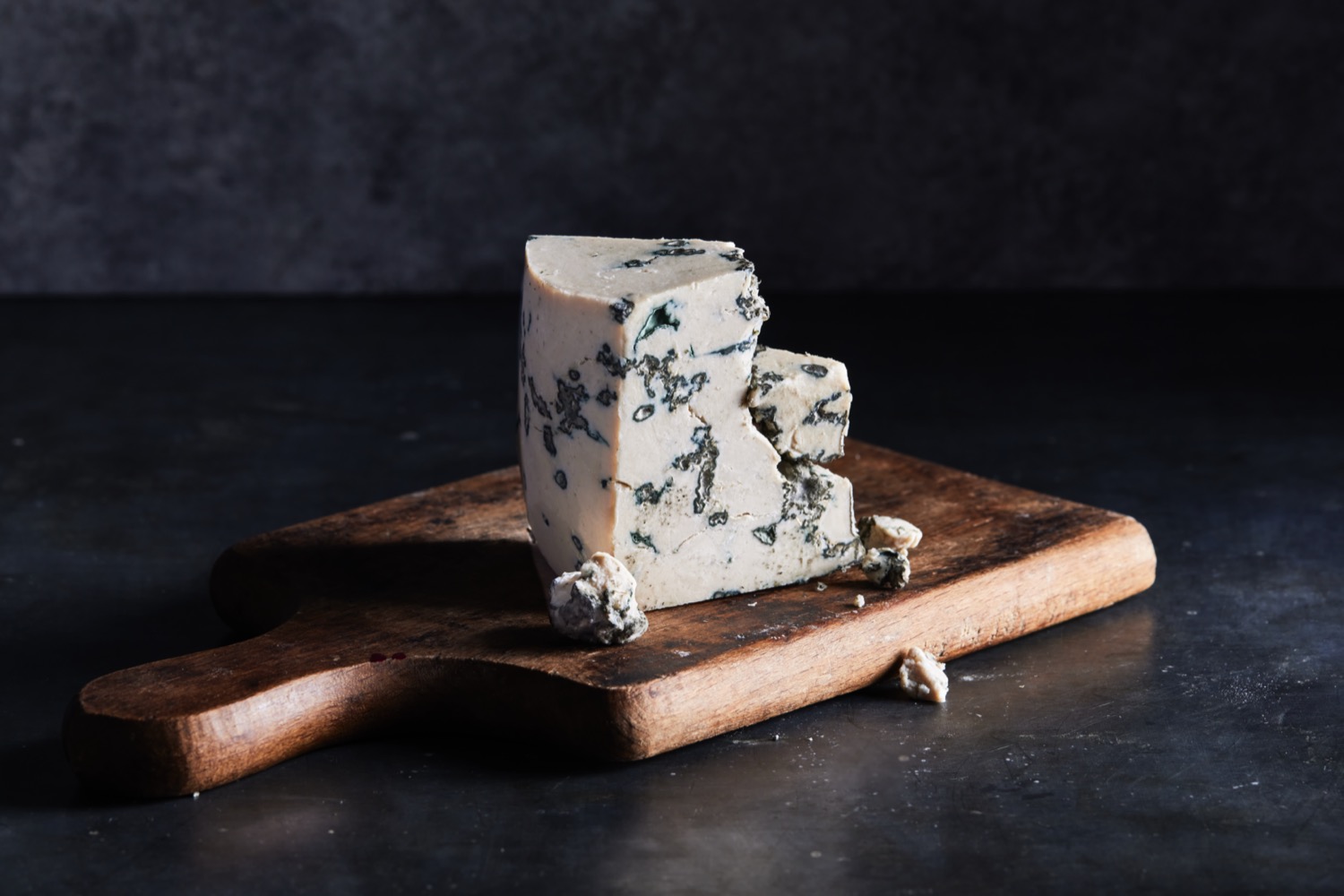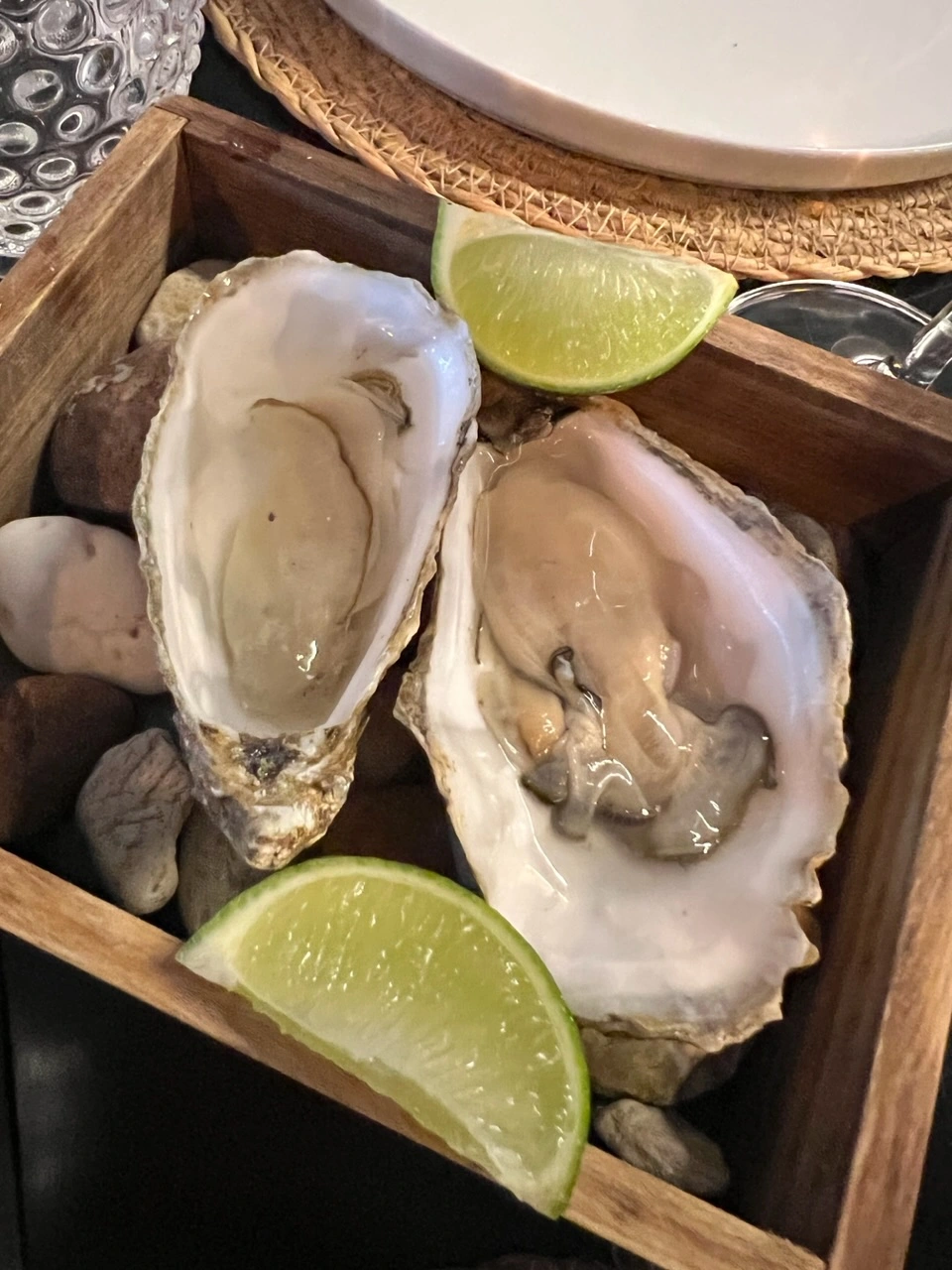Look, I dislike blue cheese purely for the flavor, but I’ll be damned i didn’t want to try this
You can really taste the feet.
It was disqualified for having an ingredient that was not GRAS(generally regarded as safe). Even GRAS is a pretty low bar for food safety.
deleted by creator
deleted by creator
Web MD is crap. Also GRAS is a term that only the FDA can bestow. So yeah it’s not GRAS.
Here are more details (and more context is in the article):
"Someone had tipped off the foundation on something that disqualified Climax, Good Food Foundation Executive Director Sarah Weiner told the Washington Post. The complaint potentially arose from Climax’s use of the ingredient kokum butter, which has not been designated as GRAS (generally regarded as safe) by the Food and Drug Administration. However, Zahn told the Washington Post that the company has replaced the ingredient with cocoa butter, which was the version he said he submitted for the awards (although Weiner contests this).
The Good Food Awards also didn’t require GRAS certification for all ingredients back when contestants submitted their products — rather, the foundation added this to the rules later on. Zahn claims the Good Food Foundation never reached out to Climax to inform the company of the new requirement, although Weiner told the Washington Post it attempted to. SFGATE could not reach the Good Food Foundation for comment in time for publication.
“It would have been very easy for them to reach out to us and tell us about the new requirements,” Zahn told SFGATE. “… The thing that’s upsetting to me is that they were kind of unprofessional by changing the rules a week before the event.”"
https://www.sfgate.com/food/article/berkeley-vegan-cheese-good-food-awards-19431532.php
Huh, turns out asbestos is actually delicious too
I mean, asbestos is dangerous if broken down and inhaled, so as long as you just eat it and you don’t choke on it…
Ground chests are also probably not okay to inhale, but here we are eating them whole. Why not dip some of that 'bestos in guac? Should solve all issues tbh.
deleted by creator
The farm industry loves their subsidies and will fight hard to keep them coming.
In the US anyway. I’m sure it’s similar in other countries but for ostensible cultural reasons.
Edit: I checked to make sure, this is in the US.
Dairy ain’t going anywhere, it’s legitimately a national security thing for food scarcity (government cheese). It’s still also heavily subsidized of course (as is Corn). Now if that could be swung to a different animal (sheep or goats), that’d have a significant impact environmentally.
I don’t see why it has to be government cheese and couldn’t be government rice and beans or government lentils. Put the subsidy dollars into plant foods and it’ll happen.
I (and my lactose intolerant intestines) wholeheartedly agree. We seem determined to recreate the conditions of the dustbowl by neglecting crop rotation and mono-crops.
Really, the disqualification is probably better publicity than winning the award itself. If someone told me some vegan cheese won a “Good Food” award, I would assume it was related to eco- and social-consciousness. Learning that it was so delicious that the dairy industry schemed to take away the award tells me they’re afraid of the competition.
Right, first thing I thought when I read this is “where can I get some of that ‘cheese’”
Yeah, well, you can’t. It’s only available to restaurants, and isn’t ready for retail. That’s one of the stupid reasons they can’t have their stupid award. Stupid sexy cheesish.
The username, the grumpy desire for vegan cheese. Perfect.
When Seiko beat the Swiss at their own mechanical watch accuracy competitions, they decided to cancel the long running prestigious competition entirely instead of make a better watch.
Capitalism breeds innovation!
To be fair, a crystal clock is just going to be more accurate than a movement based watch. Even the biggest watch fanboys admit that a $30
SeikoCasio outperforms the majority of mechanicals on raw accuracy.So… The existing market leader chose to flip the table instead of admitting that their position was weaker and lower value.
Yep, that sure sounds like the pursuit of capital instead of… innovation, quality, or any of the other attributes capitalism attempts to associate itself with.
The Neuchâtel Observatory is a publicly funded institution that certifies movements with high accuracy as chronometers. Not a private body, or a marketing tool used by a watchmaker. The same ‘competition’ is done by other observatories, all giving their own rating of a timepiece’s accuracy against a reference chronometer kept at the observatory.
A quick search could have brought you that information_ Quartz movements beat the pants off mechanical movements, and they’re far cheaper to make, allowing the non-rich to have a decent watch with good battery life and serious accuracy. Cheap and normal mechanical watches regularly drift and lose a few seconds time over days and weeks - quartz drifts between 1-110 seconds over a year.
They aren’t talking about quartz watches though. Seiko makes mechanical watches that were being compared to swiss mechanical watches costing way more.
Seiko makes mechanical watches that cost under $100 and are just as precise and long-lasting as a Swiss watch.
You’re probably thinking of Casio.Ahhhhh you’re right I mixed them up :/
So funnily enough, the very first movement they submitted to the contest in 1963 was a quartz, and it placed tenth overall. They went with mechanical movements for subsequent competitions, and didn’t actually start placing high again until 1966 when they placed ninth overall. In ‘67 they did even better, placing fourth, but then the contest was canceled for good the next year.
Misread as Sekiro, was confused about sword fighting and watches, but interested.
Oh she’s sweet but she’s Seiko, a little bit Seiko
Same with Japanese Scotch whiskeys absolutely running the table on ones from Scotland in competitions.
That’s partly because “Scotch” is a protected label. You can only call a Whisky Scotch if it was distilled with a certain technique, from certain grains, by certain companies, and matured in certain casks for a certain amount of time. All of it is regulated.
Japanese whisky doesn’t have these limitations. They can just do whatever makes it taste good.
The Japanese distilleries are following all the rules. They are just doing it in Japan and better.
If it doesn’t come from loch ness it’s just sparkling whisky
Scotch whisky must be made in Scotland. Similar story with bourbon, bourbon must be made in the United States. In many places you can follow the same recipes and processes as those products, but you may not label them with those terms.
You can make whiskey, though. According to the EU, if you have a product distilled from grain mash and stored, at full undiluted strength, in wood casks for at least three years, you can call it whiskey. You can produce a Single Malt Whiskey, or a Rye Whiskey, anywhere you want and in fact some German Korn would qualify as whiskey as it’s aged long enough.
Side note: Whisky wasn’t always aged. Originally it pretty much resembled Korn (though German noses have some rather strict standards when it comes to fusel alcohols that Whisky and Vodka producers don’t tend to have), then the UK prohibition came along and distillers had no choice but to let the stuff age in its casks while they fought the legislation, then they were allowed to sell the aged stuff, aged much longer than was previously common, and the rest is history.
Yes, but being made in Scotland isn’t enough to call your whisky Scotch. There’s a whole rulebook.
Yes, and being distilled and aged in Scotland are both rules in that rule book. Again, same for bourbon, not all American whiskies are eligible to be labeled as bourbon.
I’m an American, and we just don’t really buy into the whole “you must be from this region to be called this item”. All sparkling wine is champagne, all peaty whiskey is scotch, and all rice liqur is sake.
.
You’re right, but it’s understandable why the dairy industry shat themselves. They fucked up by allowing things to be named “oat milk” or “whatever milk”, so they damn sure aren’t going to let their “cheese” territory get encroached on.
The problem with restricting the use of the term “milk” is that people have been using the term “milk” to describe non-dairy liquids for longer than there have been trademarks. The word hasn’t ever been used exclusively to describe dairy.
Here’s a dictionary entry for “milk” from 1755:
https://johnsonsdictionaryonline.com/1755/milk_ns
Note that it includes almond and pistachio milks.
Milk of the poppy.
Milk of Magnesia
I could have never known this award even existed if not for this news. I don’t care at all for cheese and now I’m curious to try it.
Same
A Midwesterner that doesn’t care for cheese? Doubt.
“Our cheese is so good they had to disqualify us” would be my new slogan so fast.
Wasnt that what they did with monty python’s holy grial when it was banned in norway*?
If only I could buy it.
deleted by creator
They offer it at selected restaurants:
https://climax.bio/findus/
Can’t be bought yet. Later this year they say.
Big Milk will not accept any threat to their cash cow! This is outrages!
Aren’t they dairy cows?
So what is it called, so I can get some?
Edit: Climax Blue yes really
I mean, apparently it’s that good, so…
I dunno, I think I’m on the side of “it might taste great but if it’s vegan it doesn’t meet the definition of cheese.”
So I don’t necessarily agree in general, it depends on how you define milk… If you curdle a liquid and it becomes cheese like, it’s probably cheese? Unless milk can only come from mammals/animals.
I would, in fact, definite milk as only coming from a mammal. Coconut milk or soy milk or nut milk or whatever else may superficially resemble milk but they’re pretty fundamentally not the same sort of substance as milk.
We’ve called those liquids “milk” for over a thousand years
Magnesium hydroxide is also known as “milk of magnesia”. Must be milk!
There are texts going back to the 8th century talking about almond milk. That ship sailed before Columbus.
Just because it’s called the same, doesn’t mean it generally is. In Germany we have something called “Scheuermilch”, which literally translates into “abrasion milk”. The only property it shares with milk or even plant-milk is its colour. It’s a cleaning product. You could of course define milk more broadly as “white liquid”…
Fun fact on the side: almond milk & co. are not allowed to be called milk on the packaging in germany. They’re usually called something along the lines of “almond drink”. Reason being because it might confuse the buyer. Scheuermilch is still allowed to be called Scheuermilch though and coconut milk is still coconut milk. So according to our government, apparently, milk can be any white liquid unless it’s a plant based substitute for cow milk. Then it’s something entirely different.
So it’s arbitrary except for the whitish color. So who do you think is pushing for the name changes, because we’ve been doing this for 1200 years now. I expect someone doesn’t want to have to put dairy or cow on their labels. Goat milk, after all, is still unquestionably milk and is still called goat milk.
There was a time when the “definition” of marriage was a union between only one amab and afab person. Definitions change.
And I suppose it is up to the organizers of a contest over cheese to define the parameters of what constitutes cheese. But milk seems like a reasonable starting point. It is, after all, a dairy product.
Plant-based cheeses are allowed in their competition. They technically got disqualified because one of the ingredients is some type of fat that currently doesn’t have GRAS (generally recognized as safe) status. Except they only made it an issue after the plant-based cheese had won.
The whole resistance to reinterpreting culinary language is just nothing but anti-competitiveness.
That actually strikes me as a extremely reasonable justification for disqualifying it. The fact that they only noticed after it won is also not particularly suspicious.
Edit: how many alt accounts are down voting me for saying that you shouldn’t be allowed to enter in a food with potentially unsafe ingredients?
I’ll just copy and paste the same thing I replied with, above:
Here are more details (and more context is in the article):
"Someone had tipped off the foundation on something that disqualified Climax, Good Food Foundation Executive Director Sarah Weiner told the Washington Post. The complaint potentially arose from Climax’s use of the ingredient kokum butter, which has not been designated as GRAS (generally regarded as safe) by the Food and Drug Administration. However, Zahn told the Washington Post that the company has replaced the ingredient with cocoa butter, which was the version he said he submitted for the awards (although Weiner contests this).
The Good Food Awards also didn’t require GRAS certification for all ingredients back when contestants submitted their products — rather, the foundation added this to the rules later on. Zahn claims the Good Food Foundation never reached out to Climax to inform the company of the new requirement, although Weiner told the Washington Post it attempted to. SFGATE could not reach the Good Food Foundation for comment in time for publication.
“It would have been very easy for them to reach out to us and tell us about the new requirements,” Zahn told SFGATE. “… The thing that’s upsetting to me is that they were kind of unprofessional by changing the rules a week before the event.”"
https://www.sfgate.com/food/article/berkeley-vegan-cheese-good-food-awards-19431532.php
Maybe they didn’t make it an issue until after because it was under their radar? Once it became the center of attention they might have thought safety of the winner was important? The vast majority of the comments in this thread don’t even seem to know why it was disqualified.
This whole thread strikes me as odd.
Here are more details (and more context is in the article):
"Someone had tipped off the foundation on something that disqualified Climax, Good Food Foundation Executive Director Sarah Weiner told the Washington Post. The complaint potentially arose from Climax’s use of the ingredient kokum butter, which has not been designated as GRAS (generally regarded as safe) by the Food and Drug Administration. However, Zahn told the Washington Post that the company has replaced the ingredient with cocoa butter, which was the version he said he submitted for the awards (although Weiner contests this).
The Good Food Awards also didn’t require GRAS certification for all ingredients back when contestants submitted their products — rather, the foundation added this to the rules later on. Zahn claims the Good Food Foundation never reached out to Climax to inform the company of the new requirement, although Weiner told the Washington Post it attempted to. SFGATE could not reach the Good Food Foundation for comment in time for publication.
“It would have been very easy for them to reach out to us and tell us about the new requirements,” Zahn told SFGATE. “… The thing that’s upsetting to me is that they were kind of unprofessional by changing the rules a week before the event.”"
https://www.sfgate.com/food/article/berkeley-vegan-cheese-good-food-awards-19431532.php
Bro, come on man. I don’t give a fuck what you call cheese but likening dairy to sexual preference discrimination is a bit much.
didn’t you know that vegans are an oppressed minority? the dairy industry is their oppressor?
There are forms of discrimination that happen to vegans, but more importantly, it’s the non-human animals who are being oppressed.
Just noticed the name and lmao
Not its a good comparison.
The lgbtq+ communities and vegans are both seeking justice in their own areas of concern, so it’s most definitely not extreme to compare the two.
How incredibly privileged of you.
It’s extreme. The fact that you can’t see that it is undermines your entire argument. You’re not doing yourself any favors by saying that vegan cheese is as oppressed as gay people have been. No one’s being dragged behind a truck because they presented vegan cheese as a dairy product. No one’s shouting slurs at you.
You alienate people who might otherwise have agreed with you.
As an example, look at the other end of the spectrum using exactly the same, ridiculous logic. Selling vegan cheese is legal. Selling people was also once legal.
You really believe in veganism and that’s great. I’m happy for you. But punch in your weight class my dude. Some people think vegan blue cheese is better, but it lost a competition for not technically being cheese. Some people think chili has beans, but since 1967 beans have been strictly forbidden from ICS cookoffs but the people’s choice competitions strictly require them. There are reasonable parallels to be drawn there.
There is no reasonable parallel between vegan cheese in a cheese cookoff, and actual hatred of LGBTQ+ people
You’re straw manning their argument. They aren’t comparing the oppression of LGBTQIA+ folk to the oppression of cheese. The comparison is to the oppression of animals - who most definitely are being dragged behind the truck.
You can, and probably would, make the argument that animals don’t deserve the same level of moral consideration as LGBTQIA+ humans, but the vegan argument is that non-human animals experience pain and suffering and deserve the same right to life and non-exploitation for the same reason that any human (LGBTQIA+ or not) does.
This, thank you.
If we can define plant products as milk then we could also define cows as plants. It would make vegan chili contests more interesting.
Good luck with that.
Likewise, good luck with vegan “cheese”.
Clearly it doesn’t need luck - it’s already winning awards despite underhanded tricks.
According to the article, they didn’t win.
EDIT:
Actually I guess they did, see below.
They were slated to win, close enough.
That is a rather clickbaity title, with some rage baity jpurnalism right there.
They’re going to get hit with the Streisand effect.
That’s how capitalism works
The dairy industry is so pathetic.
Agreed.
They need to moooove over
Now I have this goddamn commercial in my head, thirty years since I last heard it. Thanks.
Maybe. But nothing in this story suggests that as “the dairy industry” did nothing more than disqualify a cheese made using non-GRAS ingredients.
What’s pathetic is Big Vegan telling lies to try and discredit an ancient and valuable industry.
There’s nothing ancient or valuable about a relatively new industry that’s built on lies and unnecessary suffering and death for all.
https://m.youtube.com/watch?v=roIWg4ntj9k&pp=ygUTZGFpcnkgaW5kdXN0cnkgbGllcw%3D%3D
In the first 45 seconds of that video it says we’ve been consuming milk for 10,000 years - and yet you say it’s not ancient?
Compared to the other 90% of our evolutionary history? Not by a longshot.
https://nutritionfacts.org/video/flashback-friday-the-problem-with-the-paleo-diet-argument/
I meant ancient as in ancient Greeks, not whatever obscure meaning of the word you’re using.
Lmao you’re calling me one vegan big compared to a multi billion dollar industry assaulting and separating mothers from babies.
The dairy and meat lobbies are something else. It’s like smoking in the fifties.
It’s well established that there are serious health concerns when you consume animal produce (not to mention environmental and animal welfare ones), yet the industry keeps pushing back on plant-based alternatives.
I’ve heard of potential health issues from red meat consumption, but all animal products? That’s a first for me. Do you have any sources to share on this?
Technically it can’t be all animal products, since honey is about 98% sugar, and despite the hate campaign currently hitting carbs, sugar is not quite as harmful (in and of itself) as it’s made out to be.
But if we’re referring to all animal products in the sense of meat, dairy, and eggs - those three foods have nutritional properties that are all very similar and they do have some overlap in terms of health issues.
The biggest thing they have in common is being a package deal with high amounts of saturated fat and cholesterol. Heart disease is generally the industrialized world’s number one killer, and all three animal foods initiate the onset and progress the state of heart disease.
Then there are issues that are less settled, like to what degree do these foods cause various cancers?
And then this one is even more in need of further study, but there might be a link between these foods and autoimmune disorders.
https://www.pcrm.org/news/health-nutrition/meat-bad-you-and-environment
https://www.pcrm.org/good-nutrition/nutrition-information/processed-meat
https://www.pcrm.org/good-nutrition/nutrition-information/health-concerns-about-dairy
https://www.pcrm.org/good-nutrition/nutrition-information/health-concerns-with-eggs
I’m aware that there’s evidence of saturated fats having undesirable effects on your health. But plenty of meats are low in saturated fats (e.g. skinless chicken breast, or fish).
Relatively low if you compare it only to other meats or animal products. So while you can choose animal products that might progress these chronic metabolic diseases slower, you are still advancing them. But there are lots of factors that complicate things. For example the health impacts of animal products also depend on how you cook them, and what you eat them with. Cured meats are unanimously considered one of the worst things you can consume, right up there with smoking. Steamed fish would probably be about the least harmful (except that fish have some of the highest levels of bioaccumulated toxins and heavy metals). Actually, bugs are likely the least harmful, for those who are comfortable with that. Eating a source of fiber mitigates some of the harm from animal products as shown in this video:
https://m.youtube.com/watch?v=C08mqjMuwyY
Further complicating things is that single nutrients often behave differently depending on context. For example antioxidants other than some of the essential vitamins have never been shown to produce their purported effects outside of laboratory conditions, and some supplemented sources of antioxidants have even been shown to be a little harmful. But when we test the whole foods that contain those antioxidants, we get data like how increasing leafy green consumption has been correlated with a longer life expectancy.
And it’s similar for saturated fats and animal products. In the most established science on the matter you’ll see they don’t just talk about saturated fat alone - the science appears to show a relationship between the ratio of saturated and unsaturated fats consumed, particularly polyunsaturated fats. This book describes that science quite well-
https://www.redpenreviews.org/reviews/eat-drink-and-be-healthy/
But going back to that nutrients vs whole foods, there might be more than just the fats at play. This piece by Colin Campbell is a bit of a manifesto against nutritional reductionism, and suggests that the animal proteins themselves might play more of a role than we had thought:
https://nutritionstudies.org/is-saturated-fat-really-that-bad/
When you put whole diets to the test, what starts to become most consistent is how the most whole-plant-dominant diets by far achieve the most remarkable results. It’s apparent in the Adventist Health Studies, the Esselstyn Heart Disease Reversal diet, as well as Dean Ornishes full lifestyle intervention program. The latter two claim they can reverse heart disease, which is a controversial claim. More study is needed to prove whether that’s true or false, but regardless it’s still apparent that these fully plant-based dietary interventions do more than any others to restore people to good health.
And it’s a thing where science and personal experience match. If you check out the online whole-food plant-based support communities, you see people routinely report almost miraculous changes to their health and wellbeing in a matter of weeks or even days. It’s the kind of thing that once you experience it fully enough, you don’t want to go back.
https://adventisthealthstudy.org/studies/AHS-2/findings-lifestyle-diet-disease
https://my.clevelandclinic.org/departments/wellness/integrative/esselstyn-program
Try watching the documentary “You are what you eat” on Netflix, it’s a good intro that covers the health risks of other animal products as well.
I don’t get much time to watch videos these days so I’m not going through the Netflix series. Though it looks like it’s based off this paper, and that I can look through.
They studied 22 pairs of twins, intervened by changing their diets so that one gets a vegan diet and the other an omnivore diet, then measured a bunch of stuff via blood and stool samples. I don’t see mention of how they correct for multiple hypotheses, but I’ll just give them the benefit of the doubt here.
They found statistical significance in two places
- LDL-C: Participants all start out in a healthy range, and they stay in a healthy range. So while the vegans improved on this measure, it also tells us that omnivores are perfectly healthy as well.
- Fasting insulin levels: Same as LDL-C. Start off healthy, ended up healthy. We see the vegans having lower fasting insulin, but we don’t know if that’s a good thing or not when they’re already starting at 12.7 μIU/mL.
So basically, the conclusion from the paper is that vegan and omnivore diets are both perfectly healthy, but you might gain slight benefits from going vegan.
Thanks for looking that up. I’m no dietician or medical expert myself, so I have to go by the more easily digestible media. That does run the risk of being more sensationalised.
One thing I did take away from the Netflix series was that both the omnivore diet and vegan one were designed to be well-balanced. Everything in moderation works well, I suppose.


















